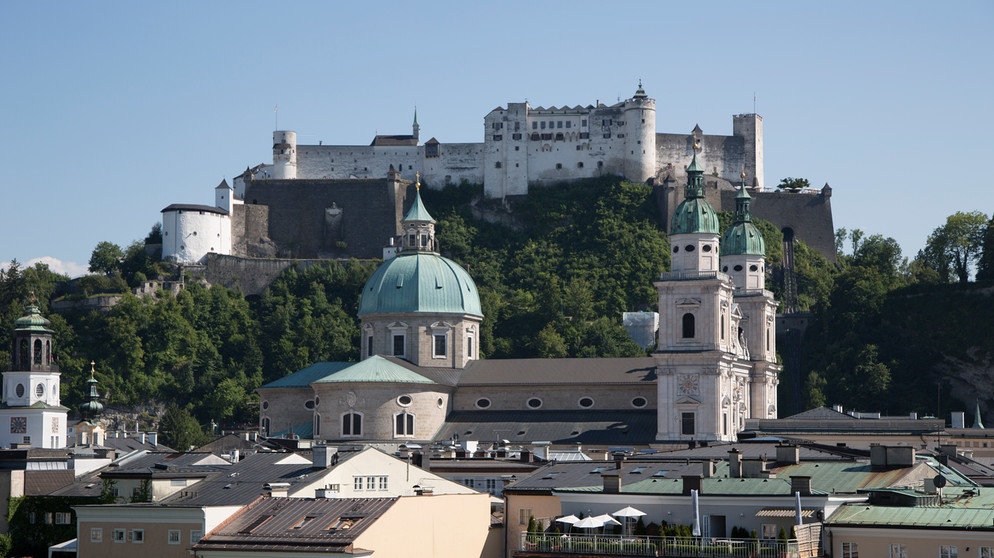Salzburg Festival Preview
productive insomnia
July 17, 2024 By Walter Weideringer
The director's contract extended, several lawsuits against the festival dismissed, a dispute within the board of directors, political calls from outside, the excitement surrounding the continuation of “Everyman” frustrated by some crisis: is this how calm has returned to the Salzburg Festival? No, of course not!
Image source: PR/Herbert Ebner
How can there be anything other than at least fruitful disruption at the Salzburg Festival – given that the festival programme in 2024 is crowded again.
10 operas, 7 theatrical performances and 88 concerts
Ten different operas can be experienced between July 19 and August 31 – half theatre, half concert, in a total of 37 performances; seven new theatre productions in 45 performances, 14 of which were the new “Everyman” with Philipp Hochmeier directed by Robert Carsen; and not to mention 88 concerts, 24 youth events and much more. The upheavals are precisely the aim of the festivals, where discussions are supposed to take place: about art itself, about the artists’ achievements and collaborations, their image and what they want to convey or inevitably convey.
Markus Hinterhauser's management extended until 2031

In any case, Markus Hinterhauser will remain director until 2031. Unlike in Germany, a formal new announcement of the position is required by law in Austria. Hinterhauser’s extension did not come as a big surprise. Especially since it became clear that Serge Dorny – now confirmed as director of the Bavarian State Opera – wanted to force the reluctant politicians in Munich to act rather than actually move away with his announced request in Salzburg.
Large numbers of visitors in Salzburg
All lawsuits and legal claims against the festival in general and the board of directors in particular during the pandemic years, which were raised in the media in all respects, were dismissed. The simple reason in Hinterhäuser's favor was that the cash register was correct. In 2023, the occupancy rate reached a record high of 98.5%; more than 241,000 people from 79 countries attended the festival.
Salzburg Festival: Tips for Festival Guests
The Salzburg Festival is the world's most famous classical music festival. How to get cheap tickets? Where to go for a good meal? Which Mozartkugel is the best? Tips for visiting your festival.
Renovation and expansion of premises imminent
In addition, there is an unprecedented structural renovation and expansion of the venues worth more than €350 million. Sharing responsibility for this would have been an extraordinary challenge for any newcomer, apart from all the scheduling and representation issues. Lucas Crepaz, the festival’s commercial director, opened a media pavilion at the end of June offering an insight and overview of the “Festival Area 2030” project.
Würth Group becomes new main sponsor

While the Hinterhauser-Crepaz axis was always excellent, the blessing of the house in the boardroom was soon averted with the appointment of Christina Hammer as festival president, succeeding Helga Rabl-Stadler, which came as a surprise to many. But the situation was at least defused by a reorganization of competencies. With the contract she had just signed with the German Würth Group, which will take over as main sponsor for three years from 2025, Christina Hammer has also registered a success that should benefit her both internally and externally.
More artists needed for direction and management
Speaking of external perception: International criticism has recently attacked Hinterhauser in an unusually clear-cut way. Is his opera program too tied to the aesthetics of the past? Is the group of directors (almost all male) too small? When will more female conductors come? And why is he sticking with Theodor Currentzis? One thing is certain: the quality of the festival as a whole cannot be fairly judged by the (opera) premieres, because the concert program, especially in Salzach, is extraordinarily well thought out and of a remarkable standard: Florian Wiegand's successor has big shoes to fill, because the Salzburg concertmaster will bid farewell to him in the fall and move to the Munich Philharmonic as director.

Of course, Hinterhauser never responded to calls from abroad with particular care, thank goodness – perhaps he remained too much of an artist. He prefers to remain loyal to those he values and trusts, even when they are attacked. Nevertheless, Hinterhauser will have the opportunity to continue thinking things through at his own planning speed over the next few years. As for the appearances of female artists, Miriam Kleemann is already staging Offenbach's “Contes d'Hoffmann” this summer, and Mirja Grazinetti-Tilla is directing Weinberg's opera “The Idiot”.
Prokofiev's “The Gambler” and Weinberg's “The Idiot” on the programme
In any case, Hinterhauser puts his remarks on the program: The fact that two rather unknown operas based on novels by Fyodor Dostoevsky are on the program as the festival premiere – Sergei Prokofiev’s “The Player” and Weinberg’s “The Idiot” – not only expands the canon. But it is also interesting for this reason, because on the one hand the Putin regime is trying to ideologically appeal to Dostoevsky, but on the other hand, these operas come from artists who suffered in different ways under Stalin’s regime. The opening speech will be given by Nina Khrushchev, a critic of Putin and the granddaughter of former Soviet party leader Nikita Khrushchev. So it seems that fruitful discussion and turmoil are still guaranteed in Salzburg.
Broadcasting: “Allegro” on July 17, 2024 From 6:05 am on BR-KLASSIK

“Travel aficionado. Certified problem solver. Pop culture guru. Typical writer. Entrepreneur. Coffee trailblazer.”








More Stories
Magic Abba – Europe's #1 Music Show Live with the Band
Joseph Hader faces 'turbulence surrounding a peaceful person'
Live streaming platform Kino VOD Club brings focus to Graz